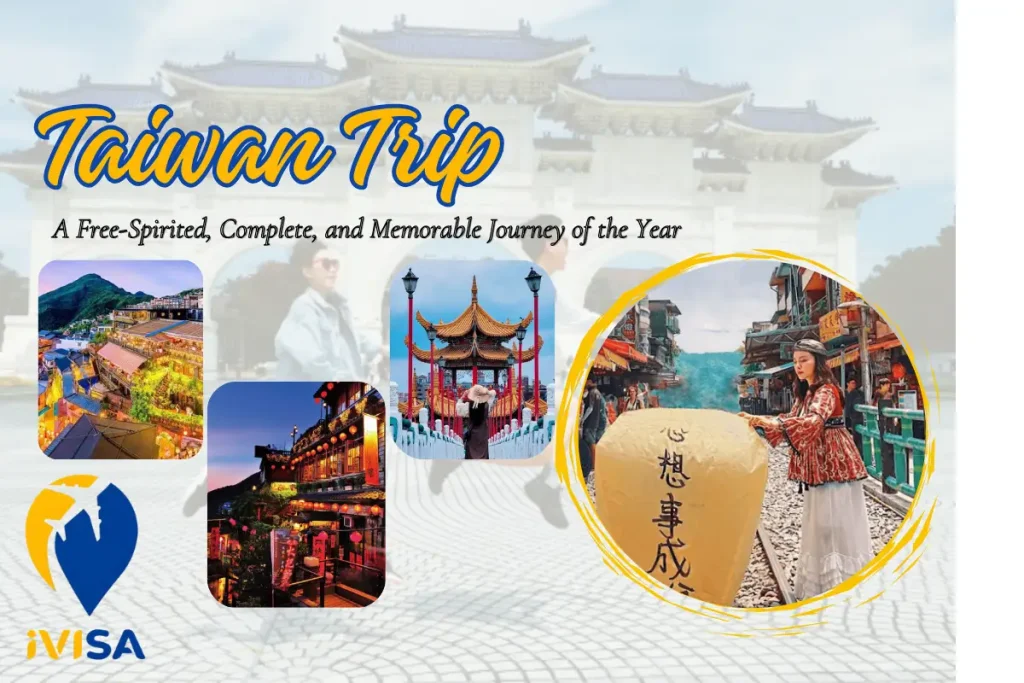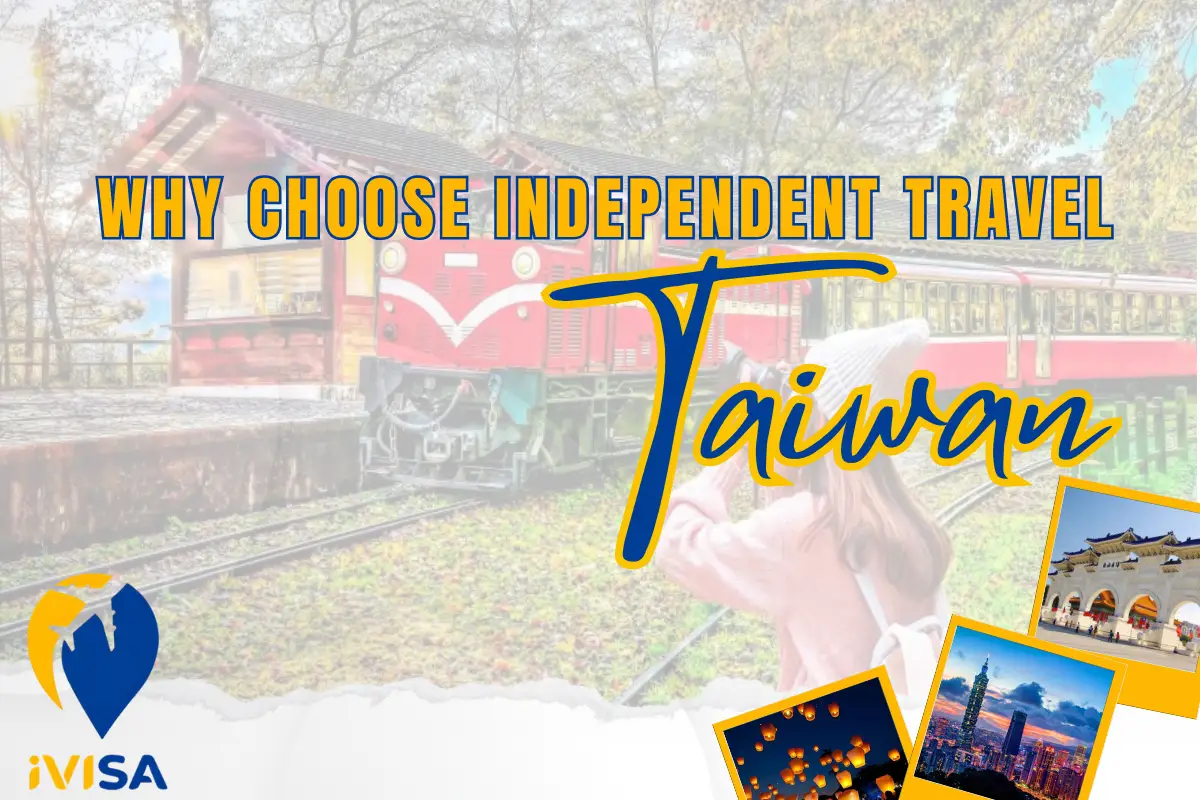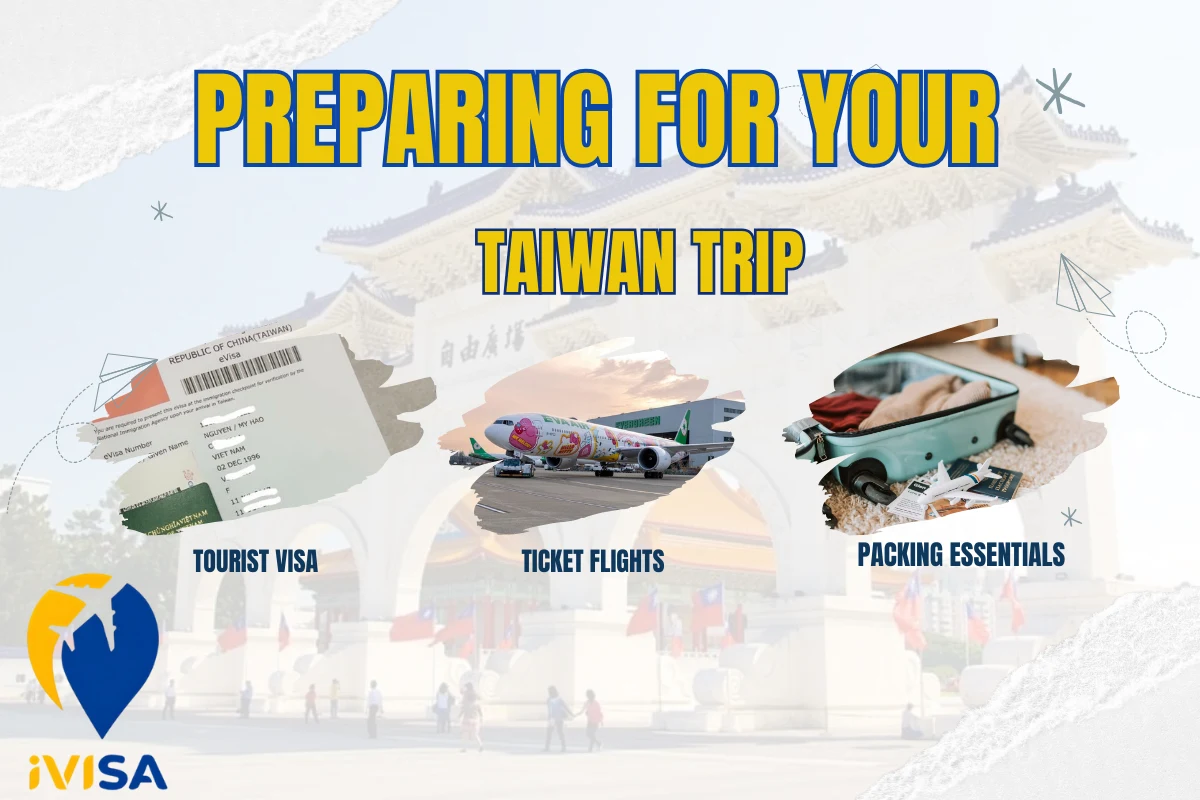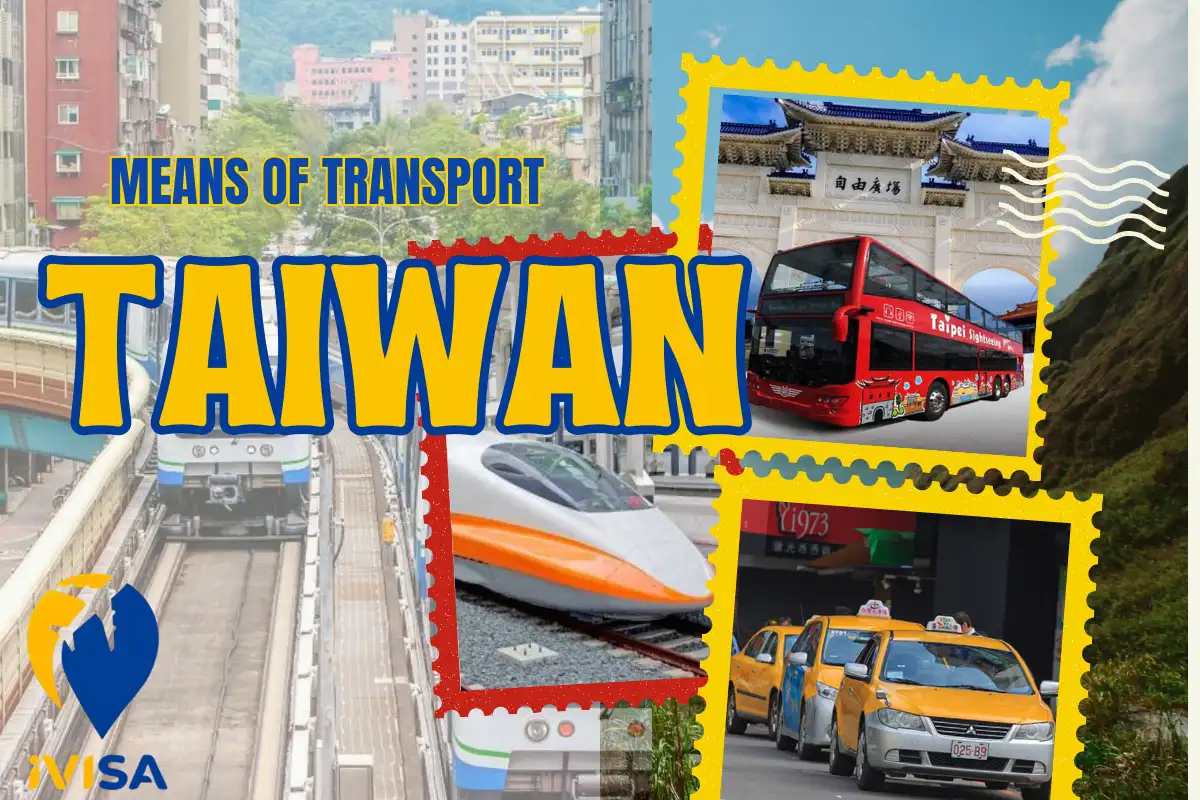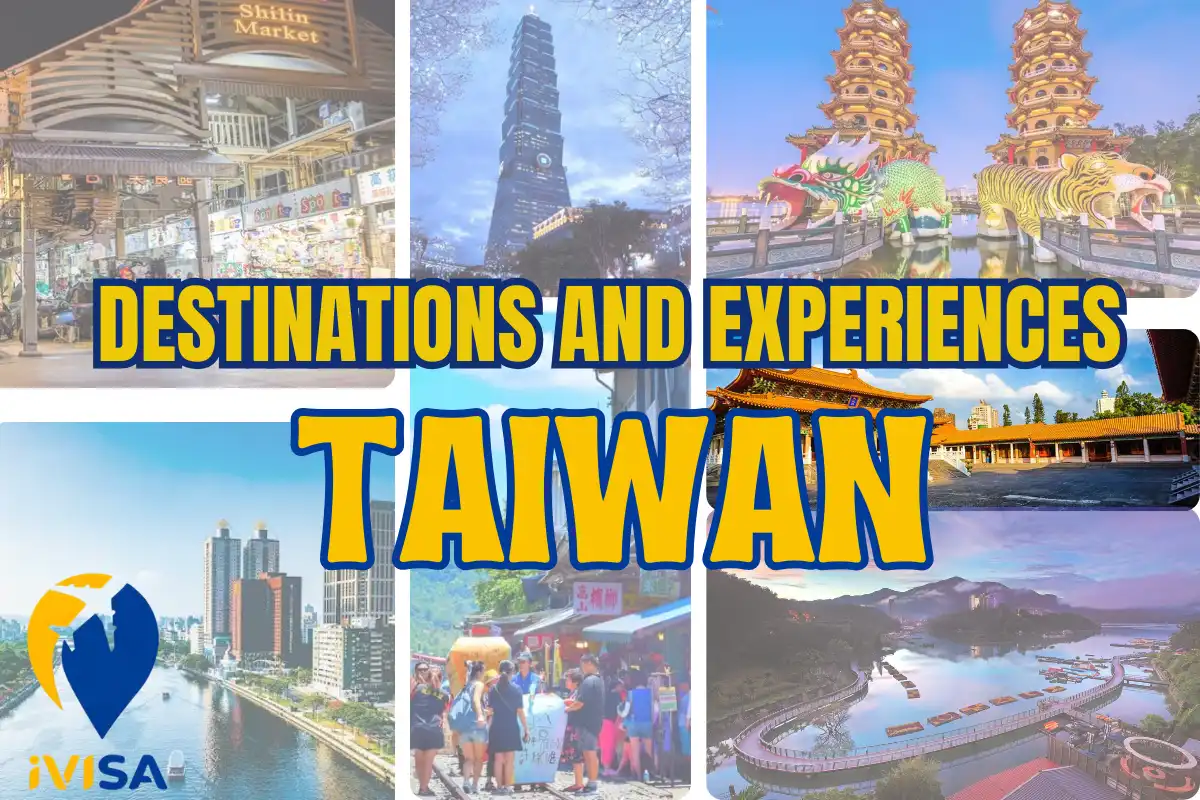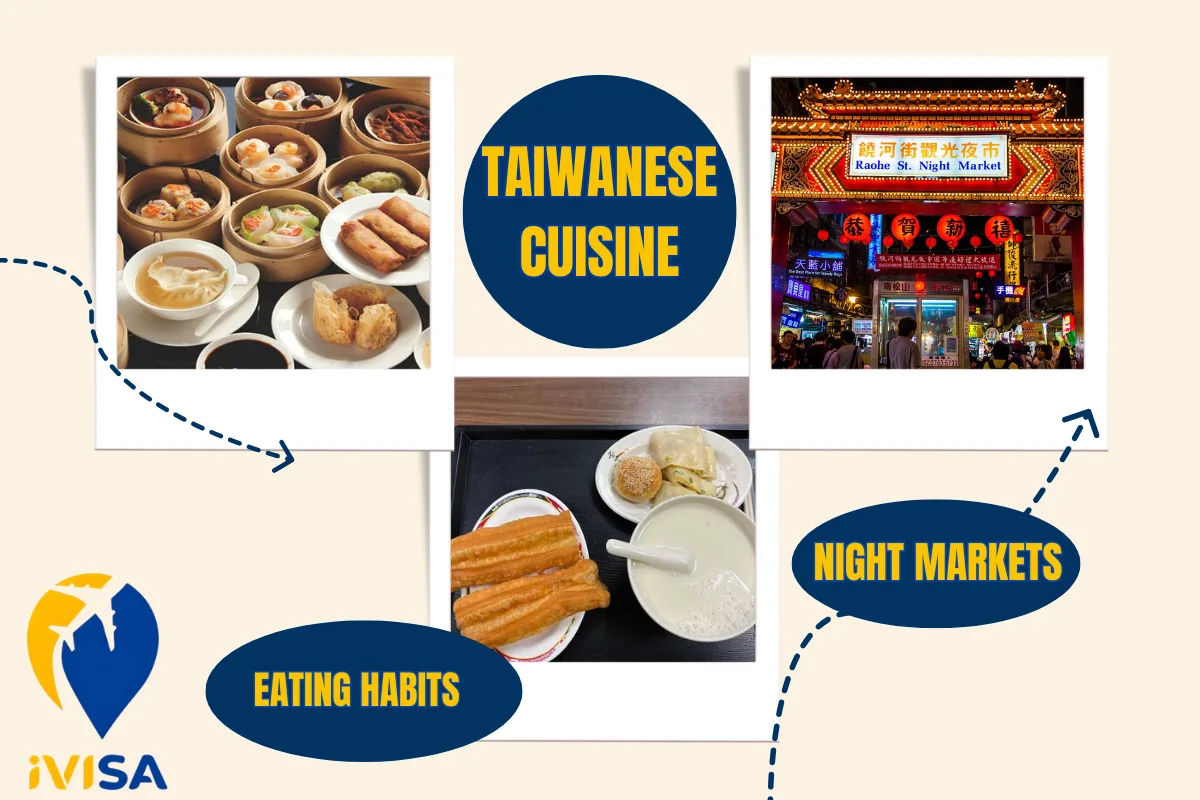Taiwan may be a small island in East Asia, but it has an irresistible charm for international visitors. Its special location, vibrant mix of tradition and modernity, and stunning natural scenery have made it a favorite destination. From the bustling streets of Taipei and the romantic Sun Moon Lake to the majestic Alishan Mountain, Taiwan promises diverse and unforgettable experience. To better understand the destinations and be able to plan an independent trip to Taiwan, let’s explore more in-depth with iVISA through this article!
Why Choose Independent Travel in Taiwan?
Compared to guided tours, independent travel offers more freedom and excitement. You can plan your own schedule, manage your budget, and choose hotels, transport, and food that suit your needs. This way, you also get closer to local life, experiencing Taiwan’s culture and cuisine in the most authentic way.
If you travel during the Mid-Autumn Festival (September–October), you can enjoy the festive spirit by tasting mooncakes, joining outdoor BBQ parties – a unique local tradition, or strolling through lantern-lit streets. It is the best time to feel the island’s warmth and liveliness.
Independent travel is especially suitable for those who enjoy exploring on their own – young adventurers or even solo travelers. Being in full control ensures experiences you will always remember.
Preparing for Your Taiwan Trip
Tourist Visa
Vietnamese citizens need a visa to enter Taiwan. Common options include a short-term visa valid for 14–30 days for tourism (Also known as the Taiwan tourist visa), a transit visa for passengers passing through Taiwan to another country, and an e-visa available for certain eligible cases.
Required documents include a passport valid for at least 6 months, application form, photos, travel plan, and financial proof. To save time and avoid mistakes, You can contact iVISA’s Taiwan tourist visa service for fast and secure assistance in completing the application process.
Flights and Ticket Tips
Flying from Vietnam to Taiwan is convenient with direct routes to Taipei, Kaohsiung, and Taichung. Popular airlines include Vietnam Airlines, Vietjet Air, EVA Air, and China Airlines.
To save money, it is best to book two to three months in advance. Avoid peak seasons like Tet or long holidays. Use apps such as Traveloka, Skyscanner, or Google Flights to compare prices and catch promotions quickly.
Packing Essentials
Good preparation makes your trip smoother, especially since Taiwan has strict baggage rules.
Bring suitable clothing depending on the season. In autumn and winter, light jackets or warm layers are recommended. In summer, choose breathable clothes for hot weather. Comfortable sneakers or walking shoes are essential.
Do not forget your phone, charger, camera, SIM card or Wi-Fi device. Taiwan uses flat-pin outlets like the US and Japan, so bring an adapter. Other useful items include skincare, basic medicine, tissues, and hand sanitizer.
Estimated Costs for an Independent Taiwan Trip
| Category | Estimated Cost (VND) | Notes |
| Round-trip flight | 4,500,000 – 7,500,000 | Promo fares: 3,800,000 – 4,200,000 |
| Accommodation | Homestay: 400,000 – 600,000/night 3-star hotel: 800,000 – 1,200,000/night 4–5-star: from 1,800,000/night | Choose near MRT for convenience |
| Food | 300,000 – 500,000/day Night market: 50,000 – 150,000/dish Local eateries: 120,000 – 200,000/meal Restaurants: from 300,000/meal | |
| Transport | 150,000 – 300,000/day (MRT/bus) Taxi: 200,000 – 400,000/trip | Use EasyCard for savings |
| Attractions | 1,000,000 – 1,500,000/trip Taipei 101: 450,000 National Palace Museum: 300,000 Yehliu: 250,000 |
Taiwan’s Means of Transport
Taiwan is famous for its modern, efficient public transport. The MRT is fast and reliable in big cities. The high-speed rail connects the north and south in just a few hours. Buses are cheap and widely available, while taxis are suitable for groups or travelers with heavy luggage.
It is highly recommended to use an EasyCard, which works for all public transport and even at convenience stores. In cities, prioritize MRT and buses. For long trips, take the high-speed rail. Use taxis only when necessary. Download an offline map to avoid getting lost without internet.
Destinations and Experiences
Taiwan is beautiful year-round, from cherry blossoms in spring and islands in summer to golden leaves in autumn and misty mountains in winter. The itinerary below is designed for the Mid-Autumn Festival (September–October), when lanterns light up night markets, and mooncakes with BBQ create unforgettable memories.
Route: Taipei → Jiufen – Shifen → Taichung → Kaohsiung → Tainan
| Day | City/Destination | Main Activities | Food |
| 1 | Taipei | Visit Taipei 101 Shilin Night Market: mooncakes & BBQ | Lunch at Din Tai Fung Snacks at Shilin |
| 2 | Jiufen – Shifen | Jiufen Old Street with lanterns Release sky lanterns Visit Shifen Waterfall | Taro cake & tea for lunch Light dinner in Taipei |
| 3 | Taichung | Sun Moon Lake in autumn Fengjia Night Market | Chun Shui Tang bubble tea Dinner at night market |
| 4 | Kaohsiung | Lotus Pond & Dragon Tiger Pagodas Walk along Love River Liuhe Night Market | Lunch near Lotus Pond Dinner at Liuhe |
| 5 | Tainan – Return to VN | Confucius Temple & Anping Fort Shopping before departure | Beef noodles in Tainan Light dinner before flight |
Food and Culinary Highlights
Taiwanese cuisine is more than just food – it is part of daily life. Each dish reflects the island’s spirit: quick, generous, yet refined.
Beef noodles are considered the soul of Taiwanese cuisine, often enjoyed with family. Giant fried chicken is popular among young people, perfect for night market strolls. Bubble tea is not just a drink but a social habit, similar to coffee culture in Vietnam.
Night markets are where food tells stories. Shilin in Taipei feels like a mini city, offering everything from seafood to souvenirs. Fengjia in Taichung is lively and youthful, filled with budget-friendly and creative food. Liuhe in Kaohsiung is famous for fresh seafood cooked on the spot.
Eating habits in Taiwan are simple yet lively. Breakfast often includes hot soy milk with fried dough or buns. Lunch is usually rice boxes or simple noodles. At night, night markets become the shared kitchen of the city.
Food is surprisingly affordable. Bubble tea costs 50–70 TWD (40,000–55,000 VND). Beef noodles are 120–200 TWD (90,000–150,000 VND). Snacks are 40–100 TWD (30,000–75,000 VND). A full day of eating usually costs just 300–500 TWD (225,000–375,000 VND).
Frequently Asked Questions
When is the best and most affordable time to visit Taiwan?
Autumn (September–November) and spring (March–May) are ideal, with pleasant weather, beautiful scenery, and lower costs compared to peak seasons.
What items are prohibited in Taiwan?
Fresh meat, seafood, vegetables, fruits, and animal products are banned. Carrying them may result in heavy fines.
Is Taiwan safe for solo travelers?
Yes. Taiwan is safe, with convenient transport and friendly locals, making it a great destination for solo journeys.
What is the cheapest way to get around?
MRT and buses, especially with an EasyCard.
Where should I exchange money?
It is best to exchange in Vietnam for better rates, or bring USD and convert at banks, airports, or large convenience stores in Taiwan.
Traveling independently in Taiwan during the Mid-Autumn Festival is a perfect choice for those who want both exploration and cultural immersion. With affordable costs, modern transport, and lively traditions, Taiwan offers experiences that feel both familiar and new. Get ready to discover every moment on this beautiful island.
iVISA Property & Citizenship
- Add: Số 99 Nguyễn Thị Nhung, phường Hiệp Bình, TPHCM
- Hotline: 0937 999 610
- Email: info.ivisatravel@gmail.com

